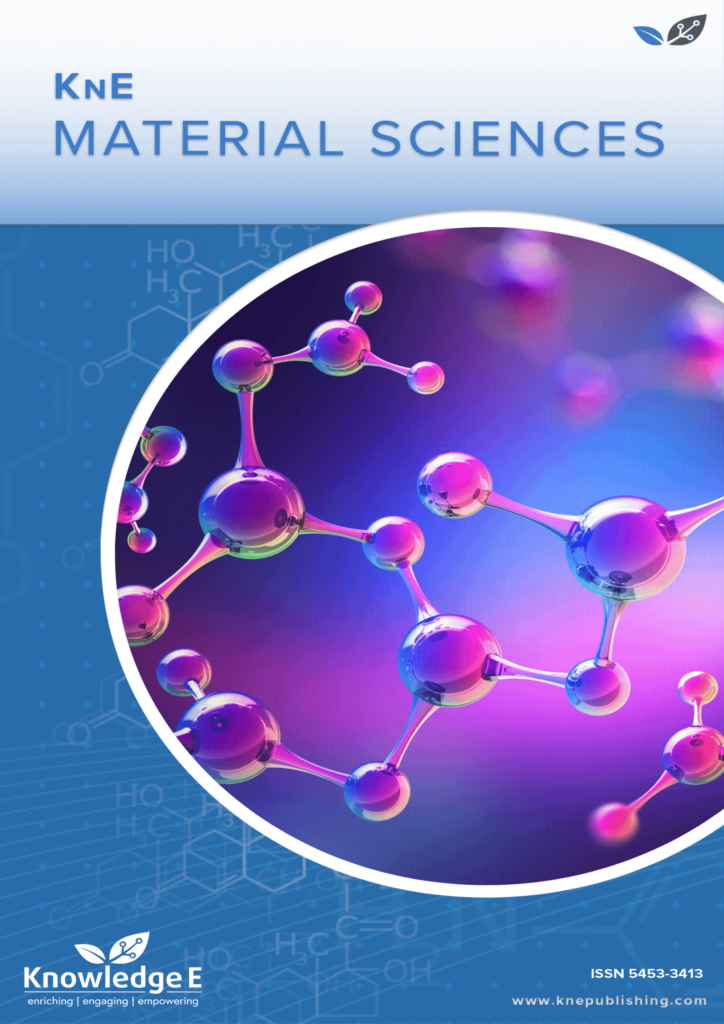
KnE Materials Science
ISSN: 2519-1438
The latest conference proceedings on physical materials, energy materials, electrical materials.
Metal Phase Formation in Bubbling Reduction of Nickel and Iron from Oxide Melt
Published date: Mar 17 2019
Journal Title: KnE Materials Science
Issue title: Theoretical and practical conference with international participation and School for young scientists
Pages: 207–214
Authors:
Abstract:
Bubbling reduction of nickel and iron from oxide melt is considered. Oxidized nickel ores melts interaction with gases (hydrogen, carbon monoxide, converted natural gas) is accompanied by the ferroalloy formation with high nickel content. This process is associated with the mass transfer, chemical reaction running and metal phase formation in the multi-component oxide melts, regardless of the reducing agent used. Those processes are of great importance for understanding of the ferronickel pyrometallurgical production processes. To describe the process, we used equations that allow one to estimate the size of gas bubble and metal drop moving in an oxide melt without fragmentation, its joint movement direction, flotation rate, sedimentation and separation conditions. The physicochemical characteristics affecting mass transfer (the densities and surface tensions of oxide and metal melts, as well as their interfacial characteristics) have been determined.
Keywords: nickel, iron, reduction, bubbling, metal, oxide, melts, ores, ferroalloy, flotation, sedimentation, reducing gas
References:
[1] A.S.Vusikhis. The formation of the metal phase during sparging gas-reducing multicomponent oxide melts. Communication 1. Theoretical bases of the process / A.S.Vusikhis, L.I.Leontyev, V.P.Chentsov, D.Z.Kudinov, E.N.Selivanov // News of the Universities. Black Metallurgy, 2016, №9, p. 639-644.
[2] A.S.Vusikhis. The formation of the metal phase during sparging gas-reducing multicomponent oxide melt. Communication 3. Separation of ferronickel and oxide melt / A.S.Vusikhis, L.I.Leontyev, V.P. Chentsov, D.Z.Kudinov, E.N. Selivanov //. News of the Universities. Ferrous metallurgy. 2017; No. 12, C. 960-965.
[3] Yu.A.Minaev Physical chemistry in metallurgy / Yu.A. Minaev, V.V. Yakovlev // M. MISIS, 2001. - 320 p.
[4] V.G. Baryshnikov. Kinetic features of the sedimentation of metallic inclusions in slags. / V.G.Baryshnikov, A.A.Deryabin, S.I.Popel, M.I.Panfilov // Izv.AN USSR, Metals, 1970, № 2, p.106-115.
[5] A.S.Vusikhis. The study of liquid and gas phases interaction during the reduction of metal oxides from the melts by gas reluctant in bubbled layer / A.S.Vusikhis, A.N.Dmitriev, D.Z.Kudinov, L.I.Leontiev.//The Third International Conference on Mathematical Modeling and Computer Simulation of Materials Technologies (MMT-2004), Ariel, Israel. 2004, Р. 1_72-77.
[6] A.A. Kazakov. Analysis of droplet flotation conditions in steelmaking processes / A.A. Kazakov // Metals, No. 6, 1990, p. 13-18.
